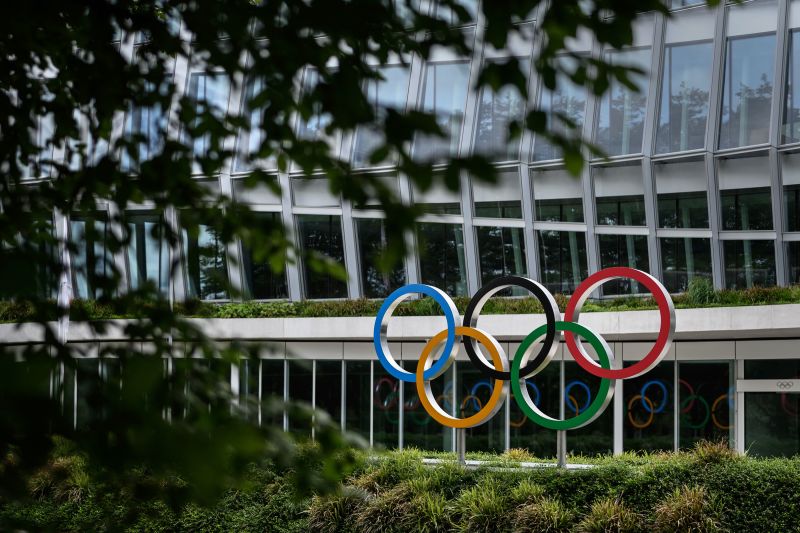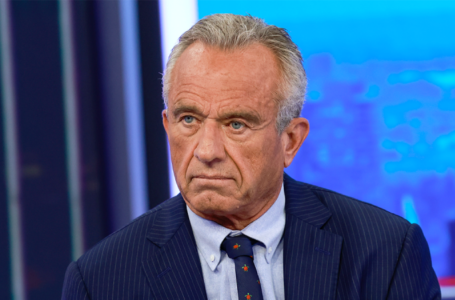Ukraine loses grip on key Russian territory, as Trump says peace ‘is up to Russia now’
World Anti-Doping Agency defends handling of elite Chinese swimmers who tested positive for banned drug


Global sport’s anti-doping watchdog has slammed as “outrageous” and “completely false” allegations that it mishandled a 2021 case in which more than 20 elite Chinese swimmers tested positive for a banned performance-enhancing drug.
The World Anti-Doping Agency (WADA) made the comments after US Anti-Doping Agency (USADA) chief Travis Tygart accused the agency and Chinese officials of having “swept these positives under carpet” and failing to follow the rules around drugs in sport.
The dispute – which centers on the extremely sensitive issue of doping in high-level sport – follows a New York Times report that brought to light how 23 Chinese swimmers were cleared to continue competing, including in the Tokyo Olympics later that year, despite the positive test months earlier.
The report, released in coordination with German public broadcaster ARD, said the athletes who tested positive included nearly half of the swimming team that China sent to the Tokyo Games and that several went on to win medals, including three golds.
WADA in a statement Saturday said it “stands by the results of its rigorous scientific investigation” into the case and was “astonished by the outrageous, completely false and defamatory remarks made by (Tygart), who has made very serious accusations against WADA in connection with the case.”
In a statement earlier that day following the publication of media reports, the agency said it had “carefully reviewed” a decision from Chinese authorities to allow the swimmers to continue to compete after the positive tests and had also responded to subsequent queries about the cases from USADA and the independent International Testing Agency.
The China Anti-Doping Agency (CHINADA) said recent media reports about the cases were “misleading,” according to Chinese state agency Xinhua, citing a statement Saturday.
According to the statement, CHINADA conducted doping tests at a national swimming event in 2021 and found swimmers testing positive for an “extremely low concentration” of trimetazidine (TMZ), Xinhua said.
The substance, a heart medication that has been banned by WADA since 2014, affects metabolism and is believed to help with endurance in physical activity. It was thrust into the global spotlight during the 2022 Beijing Winter Olympics after star Russian figure skater Kamila Valieva was handed a four-year ban for a positive test ahead of the event.
In the case of the Chinese swimmers, CHINADA decided the athletes should not be held responsible for the results after its “immediate” investigation concluded the swimmers were inadvertently exposed to the substance through contamination, its statement said, according to Xinhua.
In its statement Saturday, WADA said it was notified in June 2021 of CHINADA’s ruling on the swimmers who had tested positive earlier that year.
“As part of its review, WADA collected additional, unpublished scientific information on TMZ and consulted with independent scientific experts to test the contamination theory and also whether low doses of TMZ could have benefited the athletes during a swimming competition event,” the agency said in its statement.
“WADA ultimately concluded that it was not in a position to disprove the possibility that contamination was the source of TMZ and it was compatible with the analytical data in the file,” the statement said, adding that “in all transparency” it shared its findings with internal and external investigators.
In a second statement Saturday, Tygart of the USADA accused WADA and CHINADA of leaving “clean athletes in the dark” by not being transparent about the findings.
“When you blow away their rhetoric, the facts remain as have been reported: WADA failed to provisionally suspend the athletes, disqualify results, and publicly disclose the positives,” Tygart said in a statement posted on the USADA’s account on social media platform X.
“These are egregious failures even if you buy their story that this was contamination and a potent drug ‘magically appeared’ in a kitchen and led to 23 positive tests of elite Chinese swimmers,” Tygart said, referencing details included in The New York Times’ article citing a report from Chinese investigators.
In its earlier response to Tygart, WADA said it had “no choice but to refer this matter to its legal counsel for further action” following Tygart’s “false allegations.”
It also said “media coverage” of the situation was “misleading and potentially defamatory,” in an apparent reference to the New York Times report.











